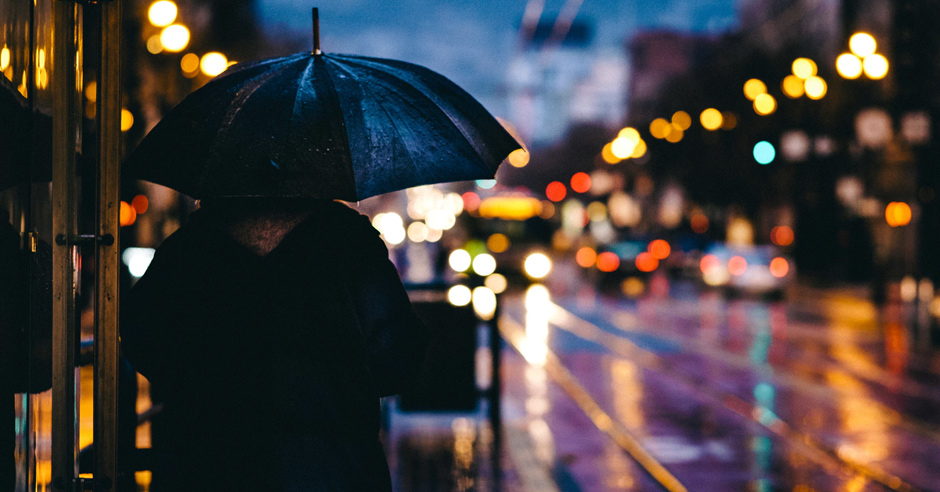
After a recent decluttering, I decided to take a bag of clothes to a donation bin. I carried my bag through the city neighborhood where I live, trying to balance myself as I passed expensive row homes lined up and people enjoying their Saturday morning coffee before heading to the farmers’ market or brunch. In many ways, this snapshot was familiar, mirroring precisely what I had done during many of these decluttering events in the past several years. But this time would be different.
As approached the donation bin, about to muster the last strength of my sore arms to heave the garbage bag into it, a woman a few feet away, waiting at the bus stop, called out to me in broken English: “Excuse me…I look for me and my daughter?” I was startled and shocked. For a split second, I thought: “No, this is for those in need.” Until I snapped to, and realized here she was, standing right here in front of me: someone in need.
When I untied the plastic bag, her eyes widened. She delicately pulled out a red silk blouse that I had no intention of wearing: “I take for my daughter?” “Of course,” I replied. She unfolded a blazer that I had worn to many interviews but outgrown. “¡Qué linda [how pretty]!” she said. My heart fluttered as we instinctively switched to Spanish, a part of myself I had only occasionally tapped into since I’d lived in Spain ten years ago.
This back and forth continued for what I think was ten or fifteen minutes—me pulling out a piece I no longer needed and her commenting on how perfect it was for her or her daughter, who I later learned was 29, just a year younger than me. Time felt like it stopped when finally she took out a rain jacket, and as if on cue, the misty drizzle outside sped up to fat drops that matched the tears welling up in my eyes. She looked at me to see if it was OK to take it, as she’d done with every other piece, and then put it on her, shielding herself from the rain. I remembered that it was this very jacket I had haphazardly trekked across Spain, my mom mailing it to me in giant box that somehow survived customs. It fit her perfectly, like it was always hers.
While she walked away with arms full of clothes that I no longer needed, I walked away empty-handed but with a new perspective on minimalism. Too many times, I’d done this exact thing: get rid of all the things I no longer thought I needed, and then, right on its heels, I’d buy replacements for half the things I’d donated. I’d been stuck on needing my minimalist life to look perfectly whitewashed and filled with only “quality” items, meaning I was just in replacement mode constantly. I’d purge and replace. Purge and replace. I thought decluttering would make me feel better. But my heart still had a void. And it was frustrating to keep using stuff to fill it.
I realized my sense of fulfillment in being a minimalist is never from the clean lines or perfectly curated closet that I can create. It’s about the messiness that confronts me head on, if I allow it, when I decide what enough looks like. For me, enough means that I have physical possessions that are useful and meaningful, but that my time isn’t spent taking care of those things or seeking out newer versions of those things. Instead, my time is spent on love.
Love is looking hard at the softness of myself in the mirror, and regardless of my thoughts about that reflection, believing that I am enough already. Love is deciding that my family members, and all of the radiant and harrowing times we have been through, are my greatest teachers. Love is choosing to be a small fraction of the solution to the big problems that rupture my heart. Love means doing small, everyday actions that leverage the privilege that I have to elevate the voices and rectify the gap for those who don’t.
The possibilities for this love are urgently simple and require paying attention to the need right in front of me. This love can mean gardening in nearby communities where the nearest grocery store is miles away; preparing meals for those who won’t see another soul for the next week; reading poetry from those whose messages are often silenced; or teaching English to those who are navigating a new and complicated home that still feels foreign to them. This love can mean asking the janitor who tirelessly empties the office trash how his mom is doing, looking the grocery store cashier in the eye and complementing her helpfulness with bagging my items or letting a person in front of me in a bustling crowd who is getting caught up in the rush-hour vortex.
Noticing can be uncomfortably vulnerable. But if I have the privilege and discernment to get rid of things, I have exactly what it takes to do it. Instead of scrolling on social media, or worrying about purchasing things I just don’t need, I am coming back to this question instead: where can I show up with love today?
Minimalism is not my goal; it’s not my end-destination where everything looks and feels flawless. Striving for that has always left me feeling emptier than when I started. But when I open my eyes, which takes self-awareness and courage, I recognize the good fortune I’ve had. I can feel the unease of a fragile world I’d rather not face. And instead of purchasing more to fill the hollowness, I can find the possibility in the fractures and say, “qué linda.” I might not be perfect, but I’m ready to show up for that brokenness and beauty with love.
About the Author: Meg Kelley is a writer whose work blends mindfulness, poetry, creative visualization, and yoga.